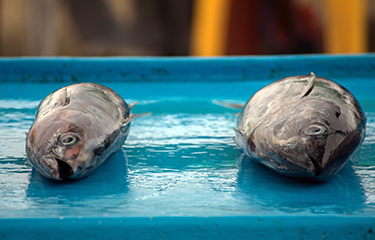A fishery targeting bigeye, skipjack, and yellowfin on the Eastern Pacific high seas and in the waters of Panama, Nicaruaga, and Ecuador has been listed on FisheryProgress.org (Fishery Progress), a website developed to help the seafood industry track credible fishery improvement projects (FIPs) and their progress toward improvement.
The fishery is listed as the “Eastern Pacific Ocean tuna – purse seine (Marpesca),” and includes five purse seine vessels operated by Marpesca, a Panamanian-based integrated seafood company specializing in Central and South American seafood. The fleet harvests tuna using fish-aggregating devices (FADs) as well as free school, or without FADs.
“The launch of the Marpesca Purse-Seine Tuna FIP is an important component of our sustainability policy and demonstrates our commitment to ensuring the long-term sustainability of our fishing fleet,” Marpesca Operations Manager Jose Luis Siero said.
The improvement project has four objectives: to ensure sustainable fish stocks; to minimize environmental impacts, including an ecosystem-based approach to fisheries management; to strengthen governance systems in flag states, the RFMO, and the Eastern Pacific purse seine tuna fishery; and to meet the Marine Stewardship Council (MSC) sustainability standard by January 2025.
A specific focus of the FIP will be to improve FAD management to reduce the impacts of fishing activities on endangered, threatened, and protected habitats and ecosystems – an important element for achieving MSC certification.
The lead organization for the FIP is Key Traceability, which provides auditing and advisory services to seafood companies on social and environmental issues. Key Traceability and Marpesca plan to work with the IATTC, which oversees the management of tuna regionally, and with national authorities to develop harvest strategies that recognize the status of target stocks and to improve compliance and enforcement in the region.
“This project must be used to make improvements across the three MSC principles to create a sustainable future for tuna in the EPO. This commitment by Marpesca to a FIP shows enterprise in response to the current pressures tuna fisheries are facing globally,” Key Traceability Science Manager and FIP Coordinator Tom Evans said.
Photo courtesy of Angela N Perryman/Shutterstock







